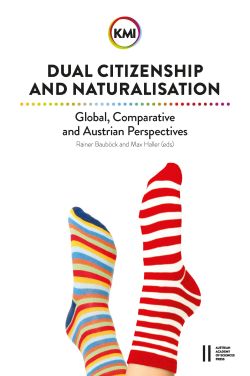
Dual Citizenship and Naturalisation. Global, Comparative and Austrian Perspectives, pp. 293-317, 2021/05/05
Global, Comparative and Austrian Perspectives

A relatively new trend in research and public debates about dual citizenship is the collective granting of citizenship to nationally and ethnically related minority populations residing in neighbouring countries, as practised by Hungary or Italy (see the contributions in this volume by Pogonyi and by Pallaver and Denicolò – Chapters 7 and 9 respectively). A former Austrian federal government (2017–2019) proposed to offer Austrian citizenship to German- and Ladin-speaking South Tyroleans in addition to their Italian citizenship. The main argument for this proposal was to strengthen the historical and cultural relationship between the ethnic minorities of South Tyrol and their “fatherland” or “protecting nation”, Austria. The topic of this study was the attitude of South Tyroleans towards this proposal. This attitude had not been investigated before, although several politicians and commentators had argued that South Tyroleans are very interested in it. This specific question was put into a larger theoretical and political context in two ways: on the one hand, the importance attached to citizenship by regional populations and, on the other, the political units with which the South Tyroleans identify today, especially their relationship with Austria. To this end, the social research institute apollis in Bolzano-Bozen interviewed a representative sample of South Tyroleans in spring 2019. The results show, surprisingly, that only a minority of them appreciate this Austrian proposal. One of the main reasons is the fear that dual citizenship would somewhat impair the coexistence of the language groups in South Tyrol. As far as ethnic-national identity is concerned, most of the respondents feel the closest to the region in which they live (South Tyrol) but very few identify with Austria, even among the German-speaking South Tyroleans. The most unexpected finding of the study is that the differences in perceptions and attitudes regarding the proposal are very slight between German- and Italian-speaking South Tyroleans. The validity of these findings is supported by the fact that similar results were obtained in surveys conducted among Hungarians living in Slovakia and among Romanians in Serbia and Ukraine.